Insights
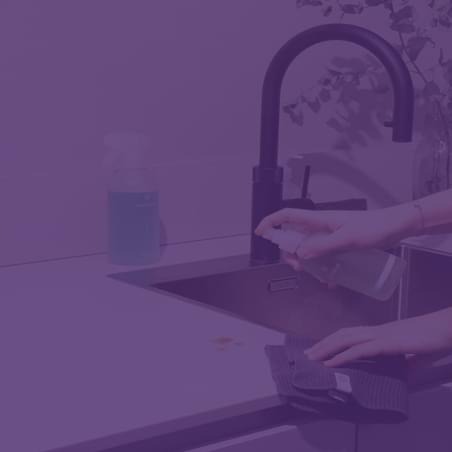
17 Feb, 2026
Five Products: When World’s Collude. The Changing Face of Cleaning
Read More
Andrew Wardlaw
29 Mar, 2022 | 5 minutes
The U.N claims that if food waste were a country, it would be the third biggest emitter of greenhouse gases behind China and the U.S. This startling statistic is one the world is increasingly determined to address. If you need to persuade your company to act, take heed from 8 more brands in the upcycling business.
In May last year, we reviewed 8 sustainable brands fighting food waste, and since then there’s been a marked increase in innovation activity. With consumer activism and more conscious choices expected to infiltrate more shopper mindsets over the next decade, this really is the time to put upcycling on your company’s innovation agenda.
In their analysis of post-pandemic food and drink personas, WGSN forecast the emergence of The Conscious Curator. Reacting to the overwhelming nature of modern life, this persona will strive to manage their lives and households in ways that keep chaos under control. They will make food and drink choices that do good for their communities and the planet. They will support brands striving to improve the food system.
Food and drink brands that are mission-driven, actively reducing waste and carbon dioxide emissions, or are rooted in local supply chains, will appeal most to this future cohort.
Concern over mankind’s impact on the finite resources of this planet will not be limited to Conscious Curators – so now is the time to explore and test ideas that offer more widespread appeal.
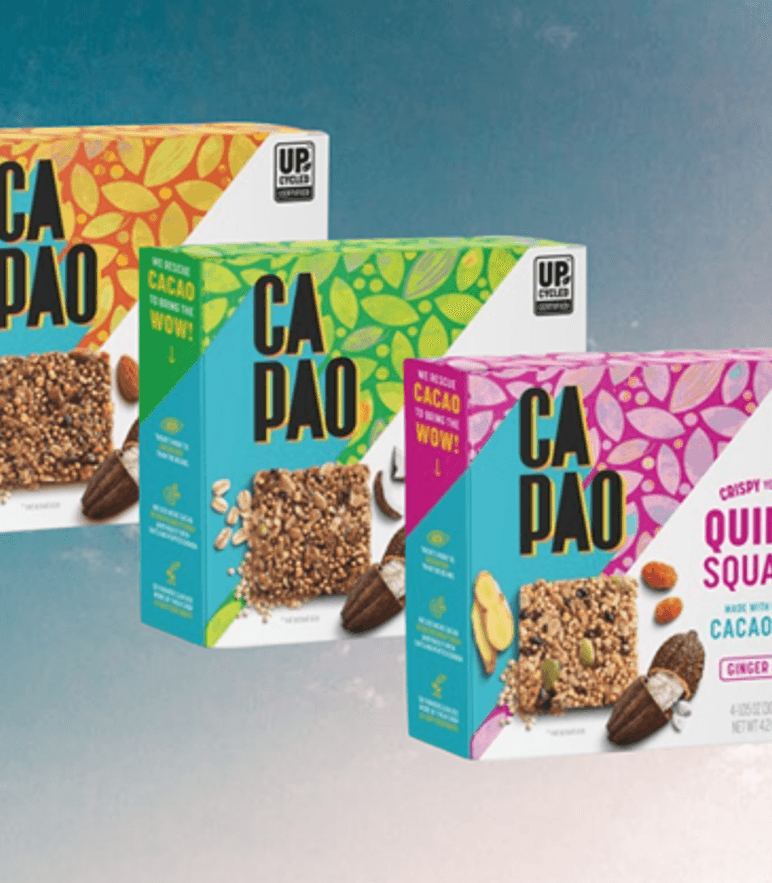
It’s been nearly four years since Snack Futures, the incubation arm of Mondelez, introduced CaPao into the world. The brand harnesses leftover pulp from cacao pods, making a dent in the estimated 10 million tons of cacao based food waste annually.
Originally targeted at busy, yoga-going parents in Los Angeles, the brand is now expanding its reach with range of evolved snacking options.
Shannon Neumann, Associate Director at Snack Futures has spoken about valuable lessons learned about how its upcycled initiative is perceived, and how the brand has adjusted to gain wider appeal.
First up, people simply didn’t understand what cacao fruit was – often interpreting it as a combination of two ingredients (essentially chocolate plus fruit). For the roll out, the brand has chosen to combine the words and communicate ‘cacaofruit’.
Second, the inclusion of the word ‘cacao’ set up expectations of a chocolaty snack experience, which caused some confusion with what was experienced. As a result, new packs will champion better understood plant-based ingredients – and cacaofruit will now become a support ingredient.
With these changes, the brand feels that the time is right for it to break out of its predominantly online business model and widen its presence across the U.S – starting with larger natural food chains. “I see upcycled not so much as trend but as a movement that’s still in its infancy” says Neumann.
So, the race is on. And the Mondelez experience is a good case study for checking in with consumers to ensure that emerging ideas and concept are landing clearly.
Acquiring mainstream appeal for your concept or prototype should be seen as an opportunity to address flaws in the food chain, and not limited to smashing self imposed purchase intent metrics.
If you’re in any doubt as to whether the moment to act is now, take heed from 8 more crusading brands hoping to win over the shoppers of the future.
Reveal is a beverage brand that is creating a more sustainable food system by finding creative ways to use the parts of food we commonly throw away. Their mission is to create beautiful, environmentally safe, and socially responsible upcycled products by discovering hidden value in the food people would normally call trash.
Reveal Avocado Seed Brew is upcycling avocado ‘seeds’ (pits) to make a line of RTD kombucha-like drinks. The brand sources pits from restaurants, which freeze and send them to The Food Innovation Center at Rutgers University to be cleaned and processed for use in the brews.
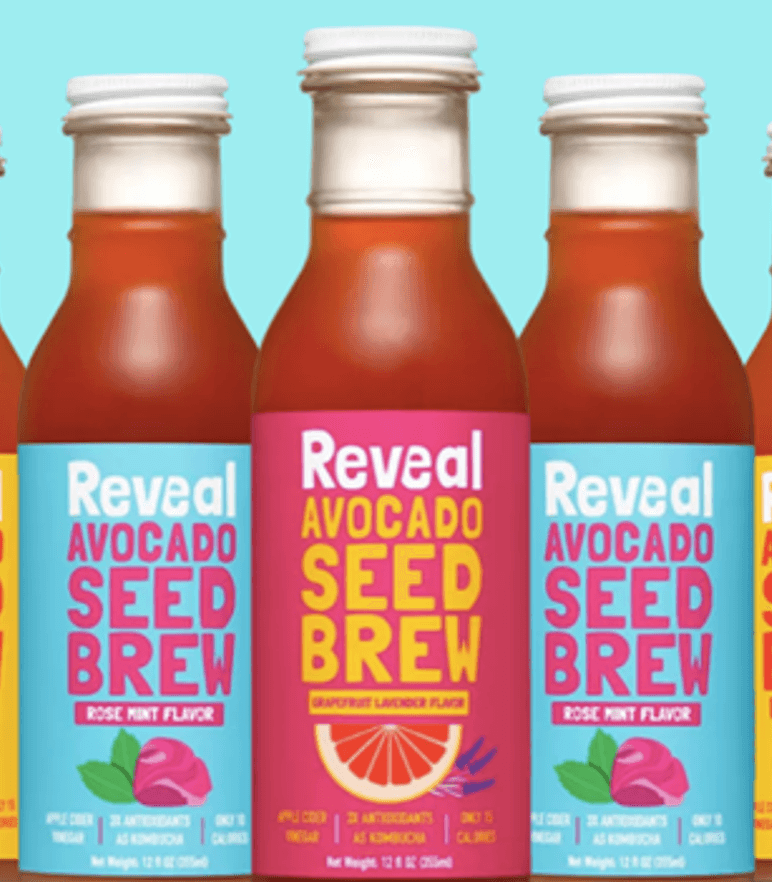
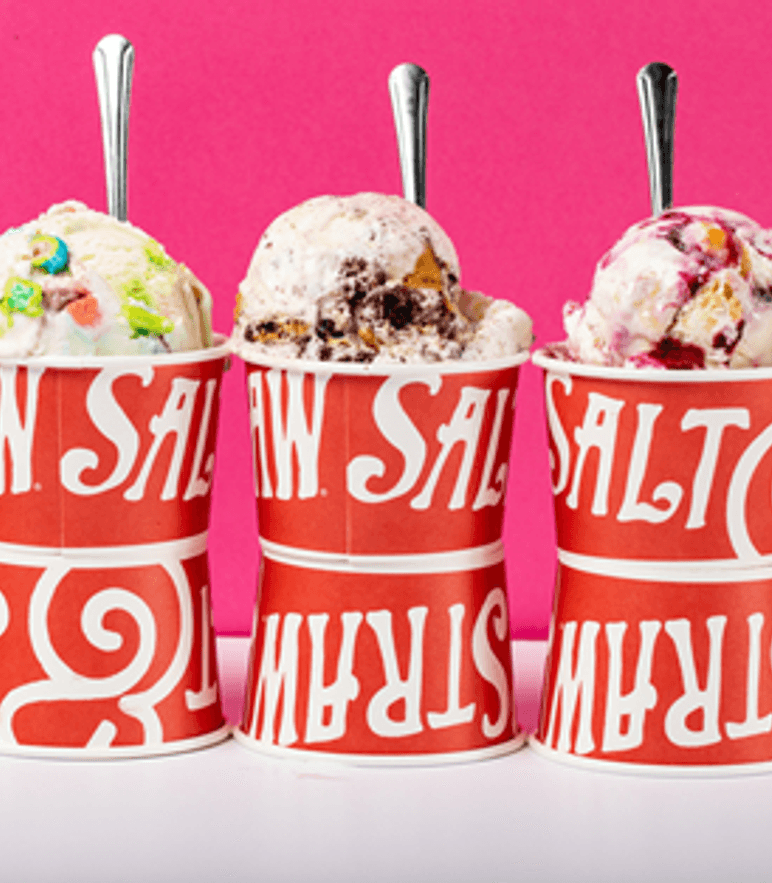
In these times of more siloed living, Salt & Straw uses ice cream as a platform to create shared experiences that inspire and connect us all. And more recently, it has teamed up with ingredient supplier Renewal Mill to create an upcycled vegan ice cream flavor. Its Chocolate Salted Caramel Cupcake option is made using okara flour from upcycled soybean pulp, a by-product from soymilk production.
This Israeli start-up’s mission is to produce the most versatile, lowest impact protein on the market. The brand is hoping to challenge the dominance of soy and pea in plant-based foods with its sustainable, cost-effective and scalable protein made from upcycled yeast.
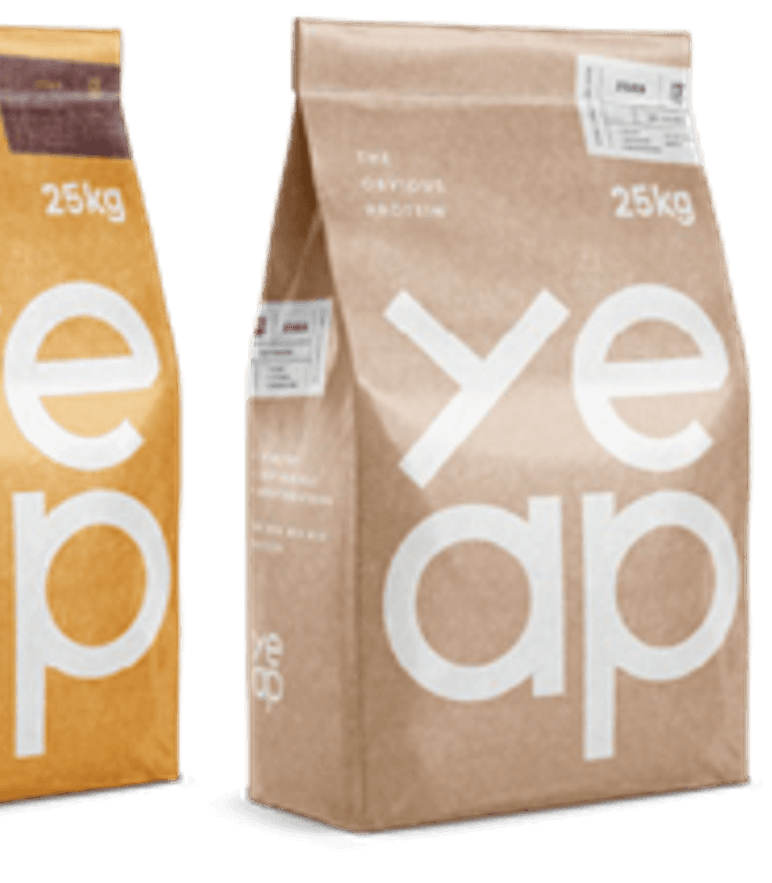
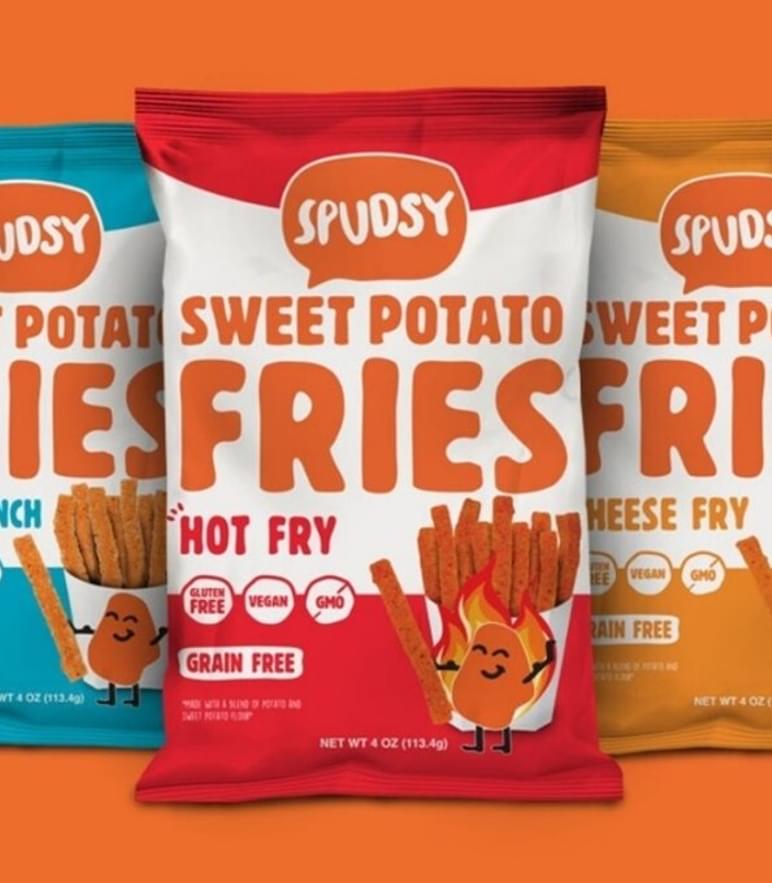
More than 150 million pounds of sweet potatoes end up in landfills each year because they are deemed imperfect due to minor ‘flaws’ such as shape, size and color.
It’s a situation that this U.S snack brand could not tolerate and so it decided to upcycle imperfect spuds to create sweet potato flour for gluten-free Sweet Potato Puffs or Sweet Potato Fries.
The brand’s website defines upcycling as the process of transforming unwanted waste materials into new materials or products of better quality with environmental value.
An Estonian distillery has partnered with a local dairy farm to produce cheese using upcycled juniper berries from the former’s own gin production. The result is Crafter’s Juniper Cheese – made from cow’s milk infused with dried juniper berries.
The distilleries zero waste policy now includes a range of juniper infused beers and a ginger beer made from upcycled ginger root.
Hanna Kaur, beverage architect at Liviko, said: ‘Juniper berries keep surprising us with their rich flavor profile. We have discovered three distinct flavor notes, which provide fresh, slightly bitter and faintly woody nuances in all three product categories.’
Not only is this brewery saving the planet, but they are also catering for people’s more adventurous tastes.
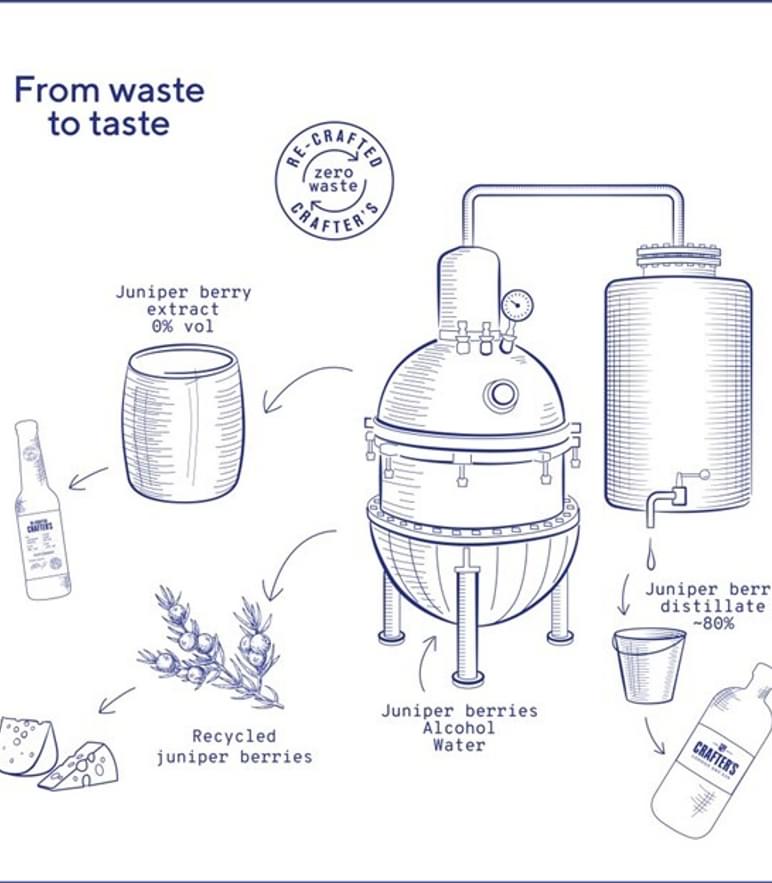
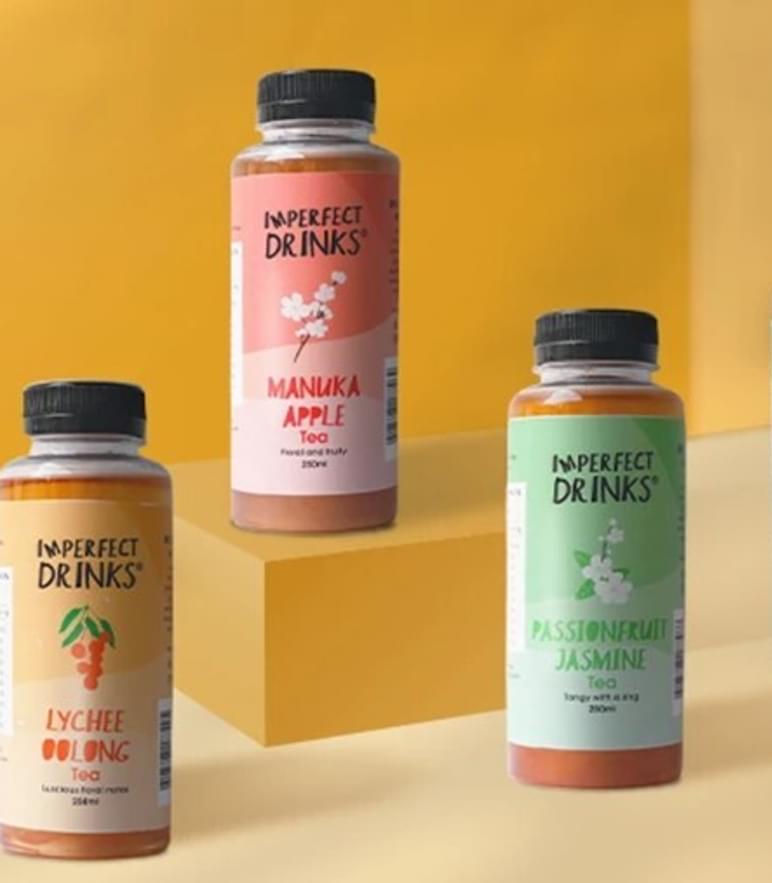
To play its part in tackling food waste, Singapore’s Boxgreen has launched a drinks brand that offers cold-pressed juices and cold brewed coffee and teas made with upcycled 'ugly' fruit and vegetables from Malaysia.
Imperfect Drinks, which claims to offer wonky fruit a second chance, is now doing the same for ex-offenders via training programs at its factory located within a prison complex.
Food tech is now delivering upcycled solutions to consumers across South Korea. A vegan meat manufacturer recently released Unlimeat, a sliced beef alternative made from upcycled grain. It recently announced plans to build one of the largest plant-based meat factories in Asia producing plant-based patties, minced meat, meatballs and vegan cheddar cheese. Its range of alternatives are primarily made from upcycled grains, oats and nuts, helping to cut down on food waste.
Getting in ahead of the curve in the U.S, the brand has announced global expansion plans and is coming to America. The company plans to gradually move from online sales to collaborating with restaurants on menu items, before launching its products in brick-and-mortar stores.
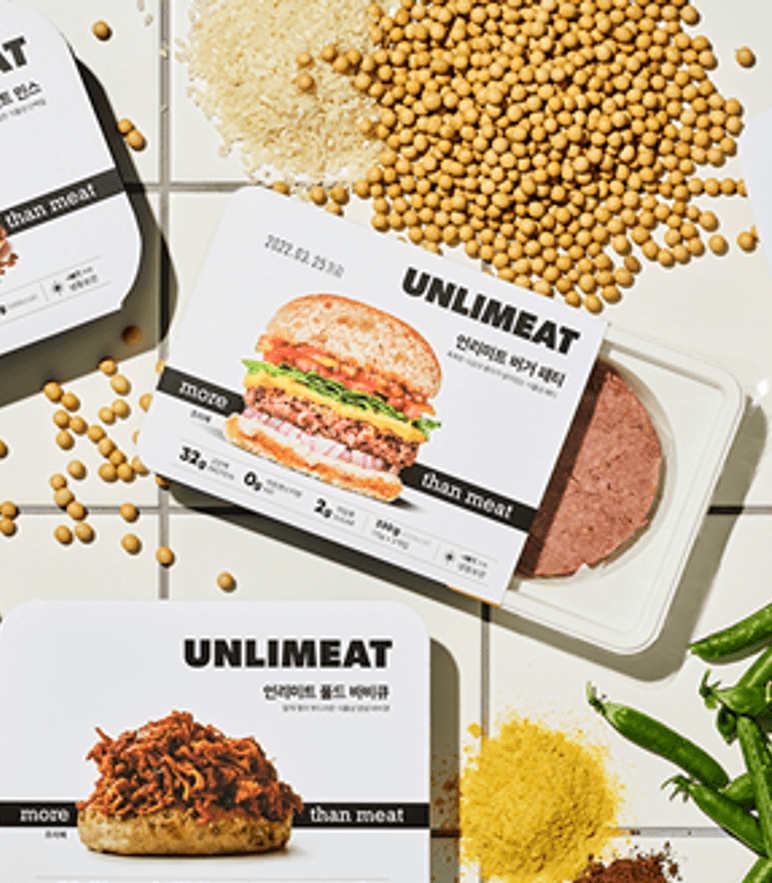
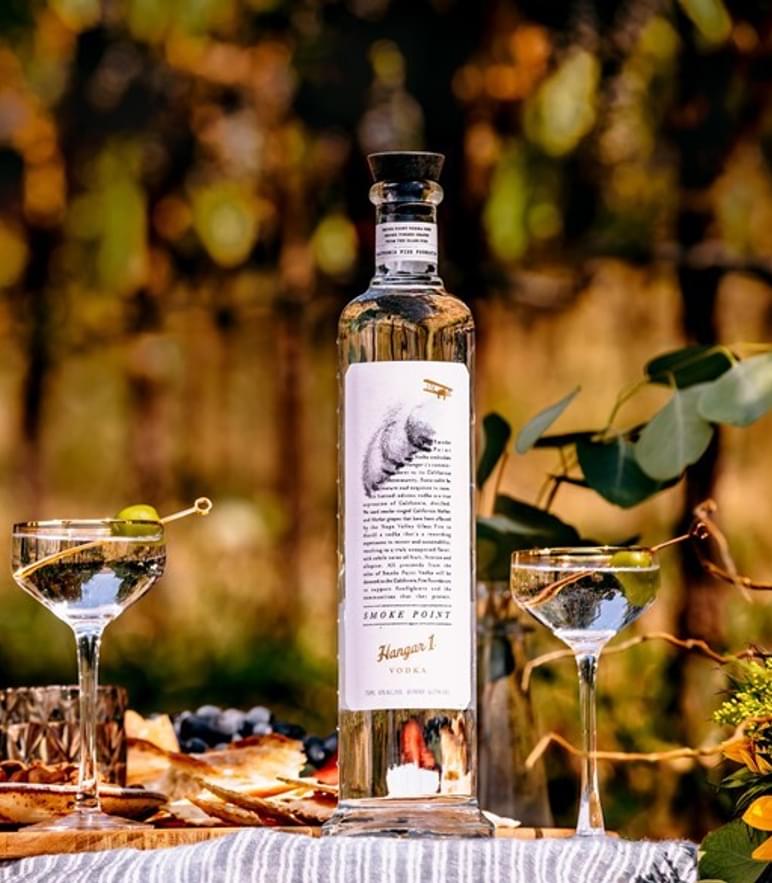
Where there is disaster there is opportunity. In 2021, Hangar 1 Distillery released a vodka made with smoke-tainted Napa wine grapes that were damaged in a 2020 California wildfire.
The grapes had been deemed unusable for winemaking and would have been wasted. The spirit, Smoke Point Vodka, offers sweet flavors of vanilla, liquorice and butterscotch, with any flavor imperfections caused by the smoke extracted during the distillation process.
Meanwhile the Discarded Spirits Company has just added a fruity, sweet rum made by infusing Caribbean rum with banana peel, creating a rich, banoffee pie character throughout the palate.
At a time when advertising is being accused of losing impact, this style of innovation is one way in which brands can make an impact in 2022.
With our eye on the myriad of post-pandemic innovation trends, upcycling and other initiatives to minimize impact on our planet are areas no manufacturer can afford to ignore.
Ensuring that your idea is communicated clearly and in a compelling way, and that your prototypes are satisfying a whole range of sensorial markers is something that MMR is well placed to support.
Wherever you’re at on your upcycling journey, reach out to our teams now for assistance with developing consumer centric propositions for this new era.